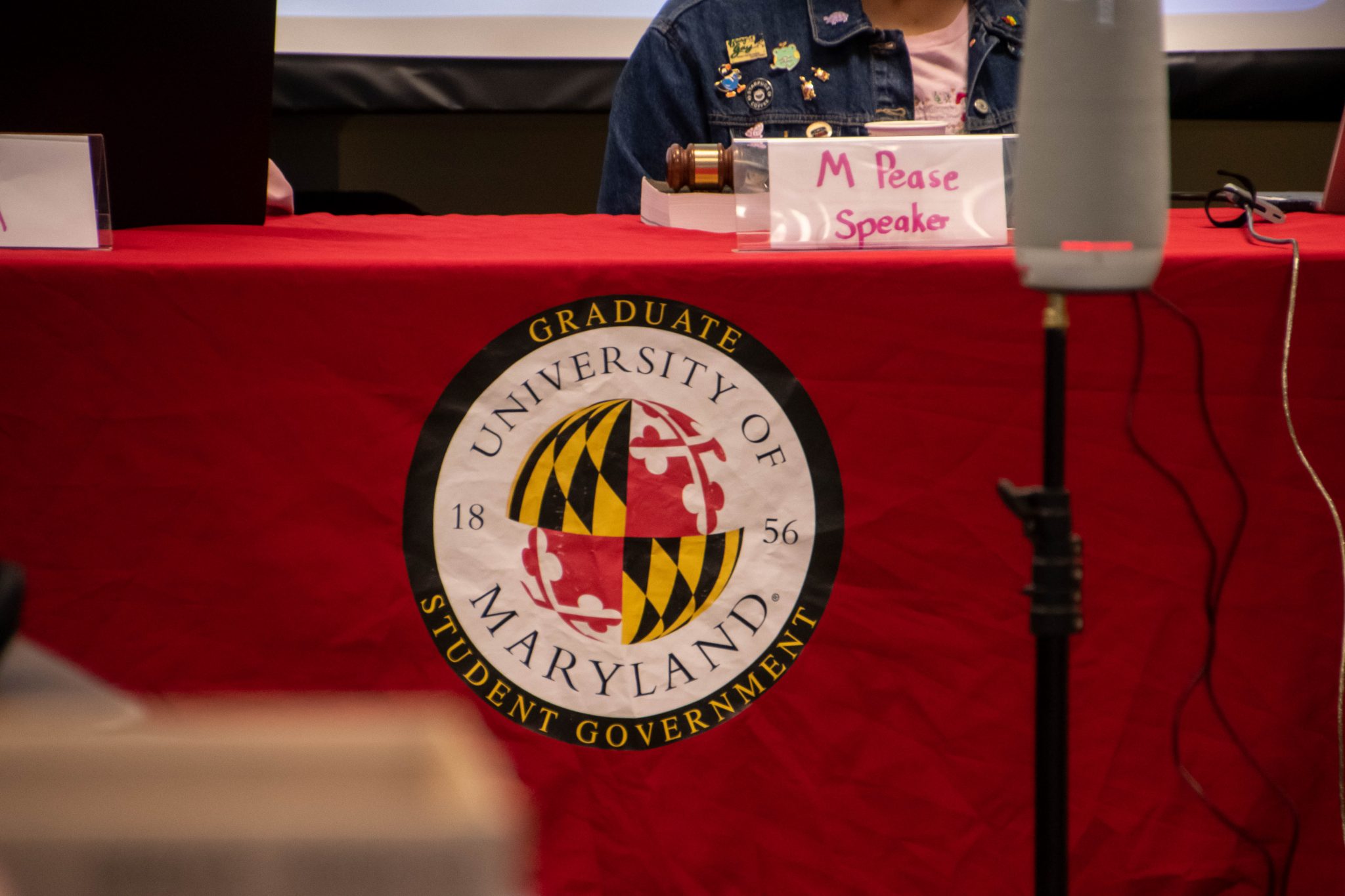Only 40 of the approximately 250 seats in the University of Maryland’s GSG are filled for the 2023-24 academic year, although the organization has gained more than 20 representatives since the beginning of the semester.
Each one of the more than 230 graduate programs at this university can have a representative in the Graduate Student Government. Programs gain an additional representative seat for every 100 students who are enrolled.
Representatives must win at least two votes to be elected, according to GSG president Autumn Perkey. Perkey said low numbers of program representatives is a problem the organization faces every year.
Jillian Andres Rothschild, the GSG’s legislative affairs vice president, said the group started the semester with fewer representatives than last year, but is now at similar numbers.
Several GSG members said that although having a full body of program representatives would be ideal, it’s unlikely to fill every position.
[‘A community in crisis’: UMD graduate students reflect on mental health challenges]
“It’s better than when we started the semester, but it’s still far lower than we’d like to see,” journalism studies doctoral program representative Keegan Clements-Housser said. “Ideally, we’d like to see almost everything filled. But it’s been a very long time since that was the case — before my time, that’s for sure.”
Rothschild added that retaining representatives from year to year is part of the issue.
“I would love to see no vacant positions in GSG,” Rothschild said. “I think I would be overjoyed if we had like 100 by the end of the year, and then we’ve retained them for next year. But ideally, I would like no vacancies.”
Rothschild’s concern with the lack of representation for various academic programs is that students are not up to date on graduate student issues and cannot voice their thoughts, she said.
According to Perkey, social science programs tend to have more representation in the organization, while STEM and humanities fields are more often underrepresented.
This university’s computer science graduate program, which has multiple seats in the GSG because of its size, has zero elected representatives.
Four candidates ran to represent this university’s computer science graduate program in a recent GSG election, but none of them received at least two votes each, Perkey said.
Computer science doctoral student Arpit Bansal said it’s important for graduate students in the program to have a representative because it would allow them to connect with the GSG.
“It would be easy for us to approach them if there is an issue,” Bansal said.
[UMD Graduate school dean discusses collective bargaining, food insecurity at GSG meeting]
Epidemiology and biostatistics program representative Nora Jameson hopes more students join the GSG. The organization gives graduate students an opportunity to engage with the governance process, Jameson said.
“I think just being on the GSG is a great opportunity to meet other graduate students outside of your discipline, and also to understand sort of the workings and how to make the school and departments better for us as students,” Jameson said.
Clements-Housser also wants to encourage more students to run for GSG seats.
The problems GSG faces with recruiting new representatives prompt a “vicious cycle,” he said. The organization’s lack of representatives make it more difficult to develop concrete solutions to issues graduate students face, Clements-Housser added.
“People are like, ‘Okay, why would I bother getting involved with student government when that just means talking about issues we can’t solve?’” Clements-Housser said.



